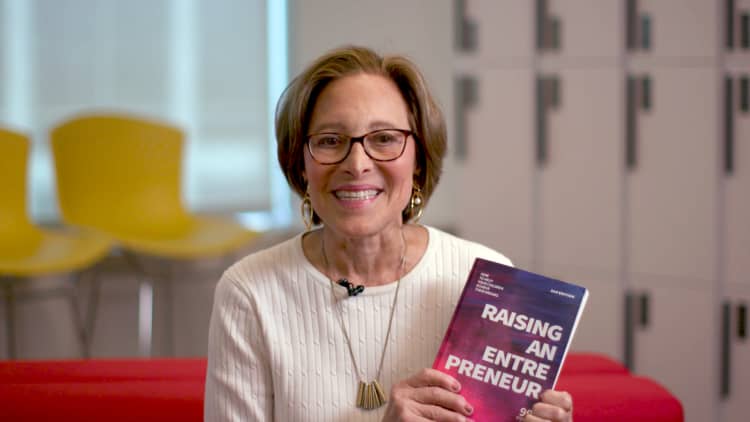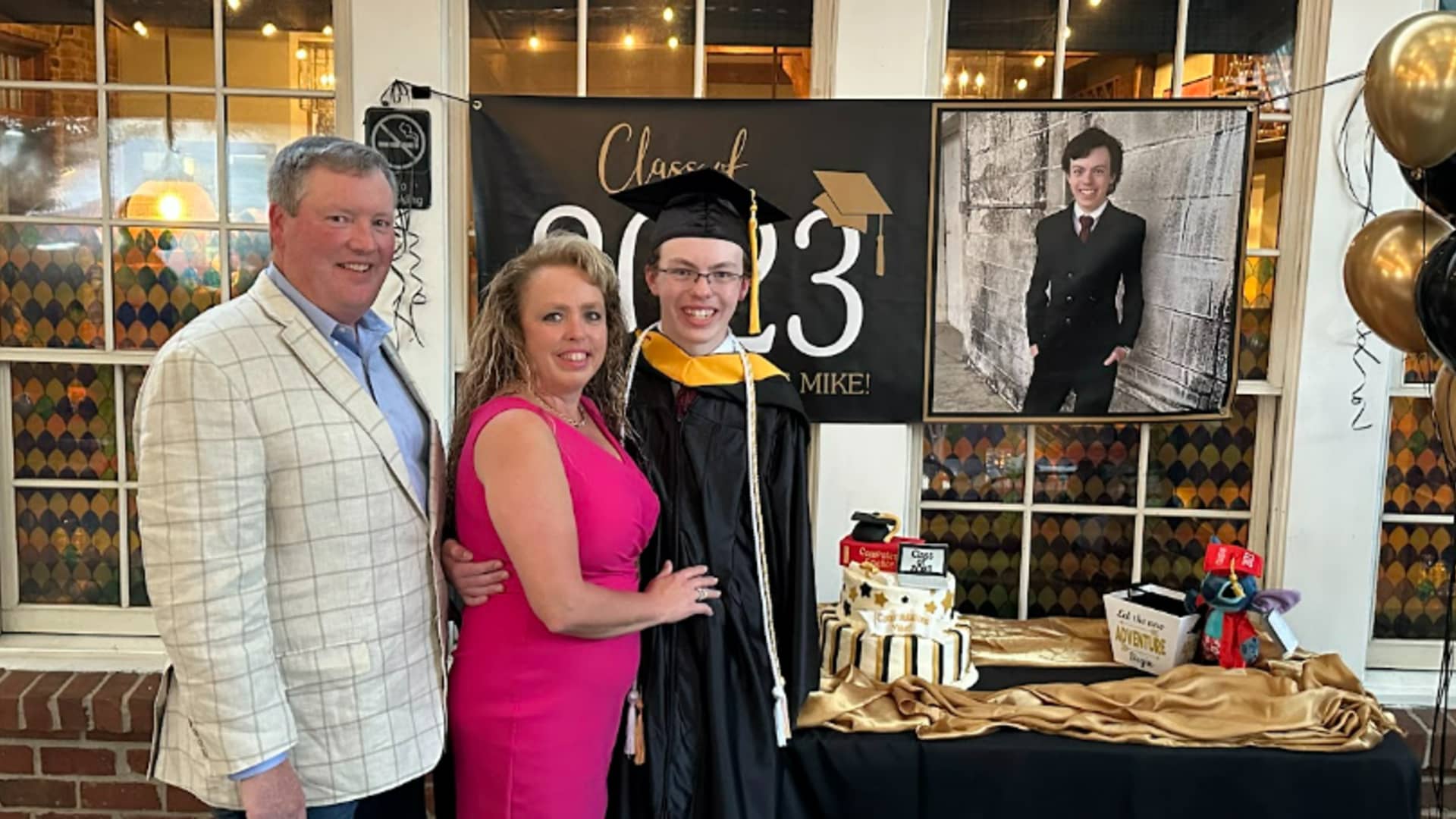Melissa and Mark Wimmer say they “never pushed” their son Mike to do homework — but they’re hard-liners when it comes to him making friends.
Mike is a certified child prodigy. The 14-year-old is a Mensa member from Salisbury, North Carolina, who earned his high school, associate’s and bachelor’s degrees all within the past three years. Along with those achievements, Mike ran two tech companies, started a third one, and partnered with Atlantic Lionshare, a Bermuda-based organization working to control the population of lionfish, an invasive species.
He’s a self-described extrovert who at age 11 won homecoming court for his high school sophomore class. His friends range from the kids he grew up with, to the 20-somethings in his college classes at Carolina University, to adult co-workers.
That isn’t always the case for child geniuses. In fact, there’s a statistical correlation between introversion and high IQs, research shows.
“I’ll be honest, people expect ‘Young Sheldon’ before they meet Mike,” Melissa tells CNBC Make It, referring to the CBS television show. Then, after speaking with him, they realize “he’s just a normal 14-year-old that happens to be able to do absolutely amazing things.”
The Wimmers are proud of helping Mike ensure his “social skills were in line with his intellectual skills,” Mark says.
Here is the Wimmers’ No. 1 rule to raising a social kid who can befriend anyone: “Let [kids] be who they are and just support it,” Mark says. “You’ve just constantly got to keep your finger on the pulse of how they’re growing and what they need.”
Surround children with a variety of age groups
Mark and Melissa discovered their son’s intelligence before he entered preschool — a child psychologist told them that Mike had literally maxed out her IQ scale — and concluded that a standard education curriculum wouldn’t support his fast-track development.
Some parents in their position opt for homeschooling, shuddering at the idea of putting their 12-year-old in a room full of 18-year-olds. Instead, Melissa and Mark saw the value in having him navigate those situations.
“I wanted him to be able to be social and be able to handle all the different personalities in the classrooms with older children,” says Melissa. “Mike will be the first one to say that his parents never pushed him as far as academics go, but [that] they left no room for negotiating on his social skills.”
Kids are more likely to form friendships with their peers when they are physically seated next to each other, recent research shows. Mixed-age friendships are linked to less reported loneliness in children, and are a significant factor of childhood development, a 2009 University at Buffalo psychology study found.
Mike may have gotten lucky at his particular school, too. The teachers and other students were “very open and welcoming,” he says. “I couldn’t have asked for a better experience, to be honest.”
By spending so much time with such a wide variety of age groups, he’s learned how to change the dial on his vocabulary, he says.
With friends his own age, for example, he will engage in conversation about car racing, not business metrics, while with adult colleagues, he may pivot to more technical discussions about artificial intelligence and machine-learning systems or the Internet of Things.
He’s a believer in the social art of compartmentalizing. “I always let the person set the tone. I gauge the person, in a sense, and then go from there,” Mike says.
Get kids out of their social comfort zone early
Mark and Melissa didn’t want to be Mike’s spokespeople, or his micromanagers, they say. Rather, they wanted him to find his own voice and use it.
“We decided that we would just put him in social situations and try to encourage him to engage with everyone else and just be more comfortable talking to others outside of our environment,” says Melissa. “Being able to communicate was a biggie.”
That meant Mike got used to being outside his social comfort zone at a young age.
“Mike gets asked a lot by some of the other parents, ‘How did you get so social?'” Melissa says. “It’s just exposing him — like letting him order food when he’s 3 or 4 from the waiter or waitress. And introducing himself to people. Those kinds of things. Just getting him where he feels natural talking to others.”
At the same, the Wimmers stress they’ve always been there to act as their son’s social safety net and support — encouraging him to put himself out there in “controlled situations,” Mark says.
At age 10, for example, Mike was asked to attend a one-week event hosted by the United States Special Operations Command, alongside 60 to 70 Ph.D.-level technology experts.
“The first day, a lot of people were like, ‘Is it Bring Your Kid to Work Day?'” Mark says. But instead of speaking on behalf of his son, he let Mike “work the room and do his thing.”
“I sat quietly in the back and by Wednesday of that week, Mike had completely flipped the room,” he adds. “Mike seriously earned their respect.”
DON’T MISS: Want to be smarter and more successful with your money, work & life? Sign up for our new newsletter!
Get CNBC’s free report, 11 Ways to Tell if We’re in a Recession, where Kelly Evans reviews the top indicators that a recession is coming or has already begun.



